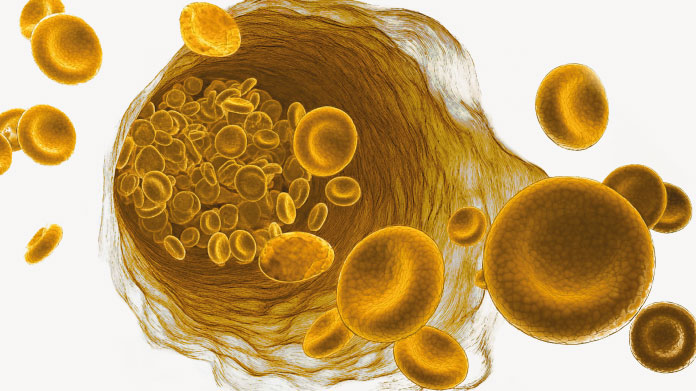What are the symptoms of magnesium deficiency?
A lack of magnesium can have serious consequences for health. Discover the symptoms that point to a potential deficiency in this mineral.

What is magnesium and why is it important?
Essential for maintaining good health, magnesium is a mineral which participates in more than 300 key biochemical reactions in the body (1).
It’s involved in nervous system function, bone and dental health, the muscular system, as well as psychological function.
Despite its importance, a significant percentage of the population is lacking in magnesium, often without realising it…
What are the symptoms of a lack of magnesium?
Common symptoms
A lack of magnesium can manifest in various ways but common signs include:
- fatigue;
- muscle cramps;
- migraines;
- and sleep problems (2).
Anxiety and nervous tension may also be symptoms of inadequate magnesium levels.
Less common symptoms
A lack of magnesium may also cause:
- pain in the legs;
- nausea;
- tingling and numbness;
- heart palpitations;
- blurred vision;
- and dizziness.
If you have any of these symptoms, be sure to consult a health professional.
How to find out if you’re magnesium-deficient
If you suspect you’re lacking in this important mineral, the best approach is to consult a doctor or nutritionist who will be able to test your magnesium levels. This will accurately identify whether you are indeed deficient in magnesium and if so, to what extent.
Magnesium deficiency: the risks to health
In addition to the above-mentioned chronic symptoms (persistent fatigue, frequent headaches, stress, anxiety…), a prolonged lack of magnesium can have more serious consequences for health, including:
- osteoporosis;
- fibromyalgia;
- depression;
- type 2 diabetes;
- hypertension;
- and heart disease (3).
It’s therefore crucial to ensure you have an adequate magnesium intake.
What are the causes of magnesium deficiency?
A number of factors can lead to magnesium deficiency, including poor diet, stress, ageing, intensive exercise, excessive alcohol intake…
Drugs can also be a contributing factor (the contraceptive pill, certain antibiotics, diuretics, immunosuppressant treatments, PPIs…), as can certain medical conditions (intestinal, kidney and endocrine diseases…) (4).
How to address a lack of magnesium
Some general rules
To prevent or correct a deficiency in magnesium, monitor the drugs you’re taking, make sure you stay well-hydrated (to help you absorb the minerals you consume) and limit your alcohol and caffeine intake (which interfere with magnesium absorption).
Manage your stress levels effectively to prevent your magnesium reserves from being exhausted too quickly (opt for meditation, yoga, deep breathing, exercise…).
Dietary sources of magnesium
Above all, make sure you include foods rich in this mineral in your daily diet. Focus on:
Oilseeds
Oilseeds, such as almonds, walnuts and seeds, are all good sources of magnesium. Almonds, in particular, provide around 270mg of magnesium per 100g, representing almost 72% of the recommended daily amount for an adult.
Pulses
Pulses, such as lentils, beans and chickpeas, are also excellent sources of magnesium. For example, 100g of chickpeas contains around 115mg of magnesium.
Cocoa
Surprisingly, cocoa is also a significant source of magnesium. A cup of cocoa powder contains up to 520mg of magnesium. Opt for unsweetened cocoa powder and dark chocolate (but don’t overdo it!).
Wholegrains
Wholegrains, especially brown rice and quinoa, also provide a substantial amount of magnesium.
Seafood
Oily fish (anchovies, mackerel…) and shellfish (winkles, shrimps, mussels…) are rich in magnesium.
Green leafy vegetables
Green leafy vegetables , such as spinach and Swiss chard, are another excellent source of magnesium.
Magnesium supplements
To benefit from a higher intake, dietary supplements can also be recommended.
Which magnesium supplements should you choose?
Magnesium malate, a classic
Magnesium malate is a good, classic form of magnesium, popular for its ability to chelate aluminium, a heavy metal which accumulates in the body. It also has good digestive tolerance and is reasonably-priced.
The powerful effects of magnesium orotate
Alternatively, you could opt for the highly-effective magnesium orotate. This form is widely recommended for its orotic acid content, which transports the magnesium efficiently within the body for optimal bioavailability.
Combining several forms
Some magnesium supplements combine, to good effect, several different forms of the mineral, for a synergistic action (such as OptiMag, which offers 8 forms of magnesium: magnesium arginate, taurinate, bisglycinate, etc.)
Special features of magnesium threonate
Last but not least, there’s magnesium threonate, a major discovery in the field of cognitive health, as it has the distinctive feature of being able to cross the blood-brain barrier and thus reach the brain (5).
SUPERSMART ADVICE
References
- Baaij, J.H., Hoenderop, J.G., Bindels, R.J. (2015). Magnesium in man: implications for health and disease. Physiol Rev, 95(1):1-46.
- Jahnen-Dechent, W., & Ketteler, M. (2012). Magnesium basics. Clinical kidney journal, 5(Suppl 1), i3-i14.
- Serefko, A., Szopa, A., & Poleszak, E. (2013). Magnesium and depression. Magnesium Research, 26(1), 1-16.
- Workinger, J. L., Doyle, R. P., & Bortz, J. (2018). Challenges in the diagnosis of magnesium status. Nutrients, 10(9), 1202.
- Slutsky, I., Abumaria, N., Wu, L.J., et al. (2010). Enhancement of learning and memory by elevating brain magnesium. Neuron, 65(2), 165-177.
Keywords
66 Days
Fiables y Recomendables
Como siempre estáis siempre ofreciendo alternativas naturales a los diversos problemas de Salud con un buen despliegue de información y una variada gama de productos. Y os felicito por el servicio de entrega que hacéis ahora que supera con creces el de antes.
Mariano Navarro Sanchez
66 Days
produits innovants
produits innovants, avec une composition claire
véronique de sainte marie
66 Days
Ravie et Très Satisfaite de Ma Commande…
Ravie et Très Satisfaite de Ma Commande et de Mes Commandes Très Bons Produits
Brigitte D.
66 Days
Produits fiables
Produits fiables
jacqueline
66 Days
Tout est OK 👌
Tout est OK 👌
RICHARD Bertrand
66 Days
Bestelle das Produkt seit Jahren immer…
Bestelle das Produkt seit Jahren immer wieder ist echt super, Preis Leistung ist ok könnte noch ein bisschen billiger sein aber sonst ok
SONJA Hofbauer
67 Days
Commentaire
Excellent services
DIDDY Mohamed
67 Days
Livraison rapide
Livraison rapide
devouass
67 Days
Schnelle Lieferung
Schnelle Lieferung. Gute Begleitung der Lieferung
SCHARWAECHTER Hans Juergen
67 Days
Efficace rapidement
J’ai commencé à prendre les facteurs de croissance osseuse alors que j’étais en plein accès douloureux d’ostéoporose. Mon état s’est stabilisé en quelques jours puis les douleurs ont diminué régulièrement. Je pense continuer ce remède pendant quelques mois puis 1 gélule par jour et une pause etc..
Françoise Delfour
67 Days
Rapidité de livraison avec prestataire…
Rapidité de livraison avec prestataire fiable ! Toujours impeccable.
Virginie
67 Days
Siempre buenas experiencias y cada vez…
Siempre buenas experiencias y cada vez más rápidos los envíos
Elsje Fokkelman
67 Days
Livraison rapide et en parfait état
Livraison rapide et en parfait état. Jamais d'erreur.
WUILLEMIN Sylvie
67 Days
J'ai trouvé rapidement sur le site le…
J'ai trouvé rapidement sur le site le complément qui m'était nécessaire et la livraison a été très rapide. Merci.
Client
67 Days
Je recommande ces produits
Facilité pour passer les commandes. Délais de livraison tenus. Produits de qualité. Je suis cliente depuis longtemps et très satisfaite.
Alexandre PUBERT







